Given that Chinese names are always fairly ambiguous (it takes my wife a good few attempts to communicate the meaning of her name to other Chinese), I'm not entirely certain how one should render "Yongpinhao": it's either "Everlasting Betrothal" or "Everlasting Engagement" (this latter in the sense of retaining a person in a position of employment). Noting that Chinese names for pu'er usually tend towards the sentimental, I'll opt for the former.
Even then, the name "Everlasting Betrothal" has a certain melancholy to it, as of a marriage never actually completed - an eternal period of engagement without tying the knot, a potential marriage remaining forever unfulfilled.
You can see where I'm going with this.
This tea has a lot of potential. The leaves are lovely. It has some realistic yet solid claims to being decent maocha from multiple regions (Yiwu, Manzhuan, Nannuo, Youlu, and Bulang). Yet it never quites gets there, much like the "Everlasting Betrothal".You can see where I'm going with this.
The Yiwu Yongpinhao company is fairly new to me. The tea is middling in price, but the factory appears to favour traditional processing techniques, including wok-frying the leaves (rather than other shaqing methods), stone-pressing the cakes (rather than using hydraulic presses), and sun-drying the tea (rather than artificially drying it). This is to be applauded for sure.
Previous encounters are limited to the 2008 Lingbo Qingdai and a 2007 "Qiaomu" maocha. I remember enjoying the first one, and buying a cake, and being nonplussed about the maocha.
Previous encounters are limited to the 2008 Lingbo Qingdai and a 2007 "Qiaomu" maocha. I remember enjoying the first one, and buying a cake, and being nonplussed about the maocha.
It's a pretty cake (pictured above). The hand-pressing results in a very pleasing compression neither too tight nor too loose. The aroma is quiet, but definitely floral. With a little poetic license, it could almost be orchid (noting that the name of the cake, Lanxiang Guyun, means Orchid-Scent Ancient-Charm*).
Also to be applauded, as shown above, is the "ethical" construction of the bing, in that the same ratio of tips:leaves exists throughout the whole cake. So often, even large producers will cover just the faces in tips, leaving cheaper leaves for the interior. This makes for a frustrating navigation through the cake, as it is hard to maintain a consistent opinion of the highly inconsistent blend. No such troubles here, and well done to Yiwu Yongpinhao for crediting the buyer so.
As regular readers will know, I adore new cakes as much as older examples, but many modern examples do not change quite so noticeably with passing infusions. This cake does evolve considerably as more brews are made.
It starts out with that sweet, floral nature that some poetic soul in the factory interpreted as "orchid". Combined with that is a "brown" characteristic: that broad, grain-like flavour that reminds me of something that is slightly "off", as if of leaves that have been allowed to turn brown. As infusions pass, the sweetness fades, the "brown" characteristic intensifies, until one is left drinking what could only be described as liquid mushroom.
In terms of texture, it is thick and decent, with a rapid huigan that becomes rapidly attenuated in subsequent infusions, as does the small amount of acidity that exists at the start. This is a pity: I like a tea with guts, but this one is very genteel, and what acidity exists is gone before too long.
I enjoyed this tea, but only to the point of buying a single cake: it's fun, but not worth any more, I think. The homogenous mushroom character dominates too quickly, and the strength of the tea recedes too rapidly, for this to become a more well-represented fixture in our collection.
Hence, the eternal betrothal, and the unfulfilled marriage.
*Yun is the "yun" in chayun and yunxiang - the character that literally means "rhyme", but which, when applied to women/tea/etc. refers to their "charm", that particular characteristic that makes them in some way special.
It starts out with that sweet, floral nature that some poetic soul in the factory interpreted as "orchid". Combined with that is a "brown" characteristic: that broad, grain-like flavour that reminds me of something that is slightly "off", as if of leaves that have been allowed to turn brown. As infusions pass, the sweetness fades, the "brown" characteristic intensifies, until one is left drinking what could only be described as liquid mushroom.
In terms of texture, it is thick and decent, with a rapid huigan that becomes rapidly attenuated in subsequent infusions, as does the small amount of acidity that exists at the start. This is a pity: I like a tea with guts, but this one is very genteel, and what acidity exists is gone before too long.
I enjoyed this tea, but only to the point of buying a single cake: it's fun, but not worth any more, I think. The homogenous mushroom character dominates too quickly, and the strength of the tea recedes too rapidly, for this to become a more well-represented fixture in our collection.
Hence, the eternal betrothal, and the unfulfilled marriage.
*Yun is the "yun" in chayun and yunxiang - the character that literally means "rhyme", but which, when applied to women/tea/etc. refers to their "charm", that particular characteristic that makes them in some way special.

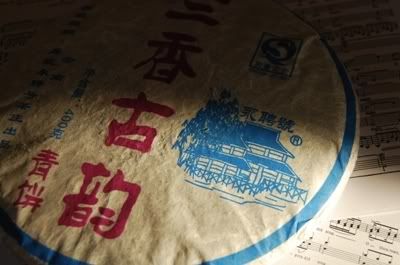
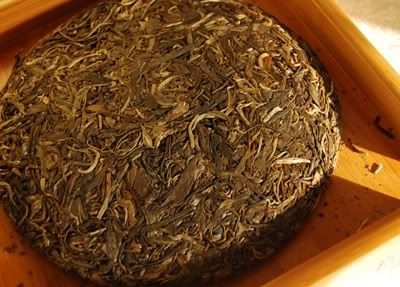
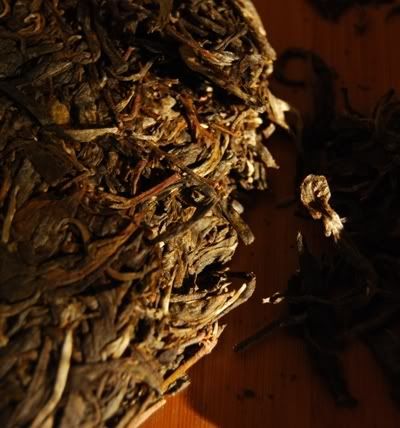
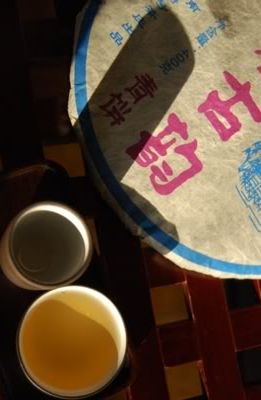
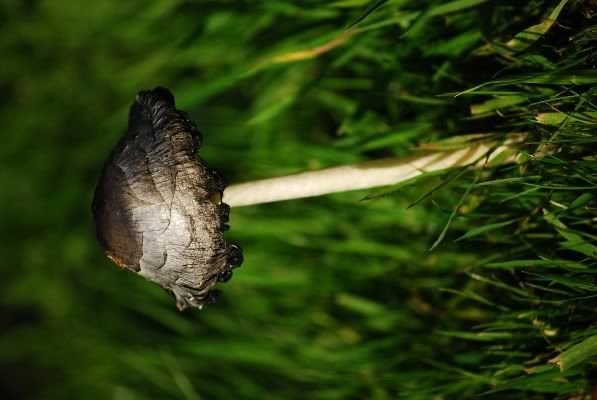
No comments:
Post a Comment